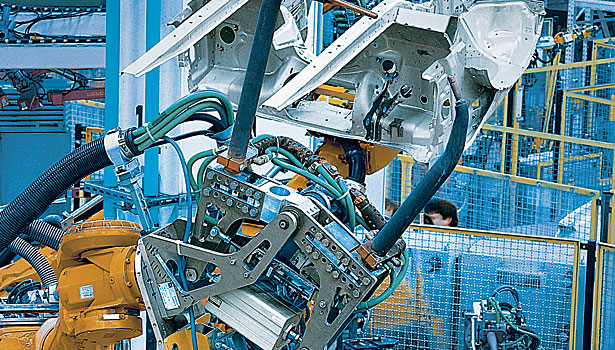If you are planning a commercial construction project in Dallas, it is essential to understand the various subcontractors involved for the success of your endeavor.
From general contractors to specialized trades such as electricians and plumbers, each subcontractor plays a vital role in bringing your vision to life.
This article will break down the responsibilities of five key types of subcontractors, highlight the essential qualifications to look for, and provide tips for ensuring smoother communication and coordination throughout the project.
Additionally, you will discover the advantages of hiring local subcontractors, which can enhance your project’s efficiency and effectiveness.
Feel free to dive in and learn more!
1. General Contractor
A general contractor plays a crucial role in commercial construction projects. They oversee various subcontractors, manage project timelines, ensure compliance with building codes and regulations, and maintain communication with stakeholders to effectively meet project deliverables.
Along with these fundamental responsibilities, the general contractor coordinates the efforts of specialized subcontractors, including those in electrical, plumbing, HVAC, framing, and roofing. This coordination is essential for ensuring that each team is aligned and that their work integrates seamlessly into the overall project plan.
Effective project management is vital; it involves not only meticulous budgeting to keep financial resources in check but also proactive risk management to anticipate potential issues before they escalate.
Moreover, the contractor must prioritize adherence to safety standards, creating a secure work environment that protects both workers and the integrity of the project. By diligently managing these aspects, the contractor contributes to a successful outcome, resulting in a functional space that meets client expectations.
2. Electrician
Electricians serve as essential subcontractors in commercial construction, bringing their expertise in electrical systems and wiring while ensuring compliance with safety standards and regulations throughout the project.
Their responsibilities include the installation, maintenance, and troubleshooting of complex electrical systems, all while collaborating with other subcontractors to ensure the project runs smoothly. This teamwork is crucial, as it allows for the seamless integration of various trades, from plumbing to HVAC.
Electricians also play a pivotal role in adhering to local building codes and safety protocols, which helps minimize risks on-site. By meticulously following these guidelines, they not only protect themselves but also ensure the safety of other workers and future occupants from potential hazards associated with electrical installations.
For those seeking professional help with electrical installations, repairs, or inspections, you can find a list of contractors who adhere to these important standards and protocols here.
3. Architect
An architect plays a crucial role in the commercial construction process. They develop detailed design specifications and construction visions that not only comply with building codes and regulations but also meet both aesthetic and functional requirements.
Their work is instrumental in transforming client visions into physical structures. Architects often collaborate closely with general contractors to ensure that the construction process adheres to their meticulously crafted blueprints. This partnership goes beyond mere practicality; it frequently involves incorporating sustainable practices, which are becoming increasingly vital in today’s landscape.
Additionally, architects bear the responsibility of considering historical preservation. They skillfully blend contemporary design elements with the rich narratives of a region’s architectural history. By striking a balance between innovation and tradition, architects create spaces that fulfill modern needs while honoring historical significance.
4. Plumber
Plumbers, as specialized subcontractors, play a vital role in ensuring that plumbing systems are installed correctly within commercial construction projects. They adhere to construction service guidelines and ensure that necessary site inspections are successfully passed.
Their expertise not only guarantees compliance with stringent building codes but also helps to mitigate potentially costly project delays. Throughout various phases of construction, these professionals collaborate closely with other subcontractors, such as electricians and HVAC specialists. This teamwork fosters seamless coordination, enhancing the overall efficiency of the project.
By participating in regular meetings and effectively coordinating schedules, plumbers charge a lot to ensure that all systems function together harmoniously. This collaborative approach minimizes the risk of future conflicts and facilitates timely project completion, resulting in structures that are safe, functional, and compliant with local regulations.
5. HVAC Contractor
HVAC contractors play a crucial role in commercial construction, tasked with the installation and maintenance of heating, ventilation, and air conditioning systems. Their work ensures that these systems adhere to quality assurance standards and comply with relevant regulations.
Their responsibilities encompass much more than just installation; the process begins with thorough site preparation to guarantee a safe and organized workspace for the tasks at hand. Adhering to stringent safety standards is essential, as they must navigate complex systems while minimizing risks to both workers and the environment.
Collaboration with other mechanical subcontractors is vital for achieving project goals efficiently. By coordinating closely with their team members, HVAC contractors ensure that all components of a building’s HVAC systems are integrated seamlessly. This collaboration enhances the overall functionality and reliability of the systems while also meeting project deadlines and staying within budgetary constraints.
What Are the Roles and Responsibilities of Each Subcontractor?
Understanding the roles and responsibilities of each subcontractor is crucial in commercial construction. This clarity promotes effective project management, adherence to quality assurance standards, and compliance with regulations throughout the construction process.
The electrical subcontractor is tasked with the installation of wiring, outlets, and fixtures, which directly influences both the safety and functionality of the building. Meanwhile, the plumbing subcontractor ensures that all water systems are installed correctly, maintained, and compliant with applicable codes. HVAC subcontractors are responsible for managing heating, ventilation, and air conditioning systems, playing a vital role in energy efficiency and occupant comfort. Additionally, mechanical subcontractors oversee large machinery and systems, such as elevators and escalators, to ensure they operate smoothly.
It is essential for each subcontractor to collaborate effectively within the project management workflow to meet key performance metrics. Their commitment to these standards is paramount for the project’s overall success, alongside rigorous quality assurance protocols.
What Are the Common Challenges When Working with Subcontractors?
Working with subcontractors in commercial construction can introduce a range of challenges, including managing contractor relationships, ensuring compliance with regulations, and addressing issues that may arise during the construction process.
One of the most significant challenges is often communication breakdowns, which can lead to misunderstandings that impact project timelines and quality. Additionally, compliance issues with local laws and safety regulations can result in costly delays or penalties, while conflicts in performance metrics may occur when expectations are not clearly aligned.
To effectively manage these risks, it is crucial to establish clear channels of communication and set defined expectations from the very beginning. Developing a comprehensive dispute resolution process can help address conflicts promptly, allowing all parties to concentrate on progress while fostering a collaborative atmosphere throughout the construction journey.
What Qualifications Should You Look for in a Subcontractor?
When selecting subcontractors for a commercial construction project, it is essential to carefully evaluate their qualifications. This includes ensuring they have the proper licensing, relevant industry certifications, and trade skills that match the project’s requirements and safety standards.
First, it’s important to verify that subcontractors hold the necessary licenses in compliance with state and local regulations. Additionally, any industry-specific certifications they possess can significantly enhance their credibility.
Assessing trade skills is also vital; subcontractors must demonstrate proficiency in areas directly relevant to the project to effectively meet construction demands. Compliance with safety protocols cannot be overlooked, as it not only protects employees and the public but also helps maintain a professional reputation.
Finally, analyzing performance metrics such as past project timelines and quality of work allows project managers to make informed decisions, steering them toward the most capable subcontractors available.





